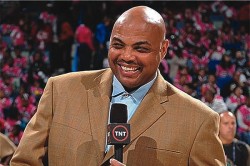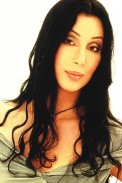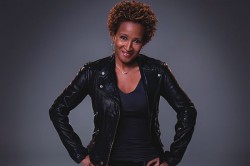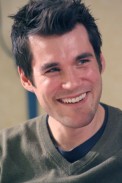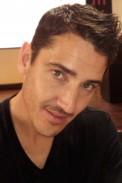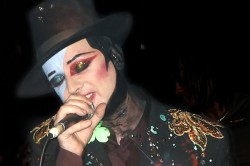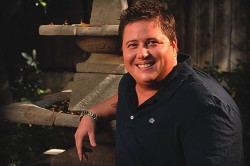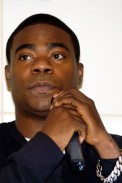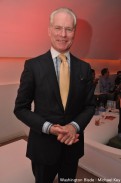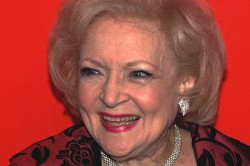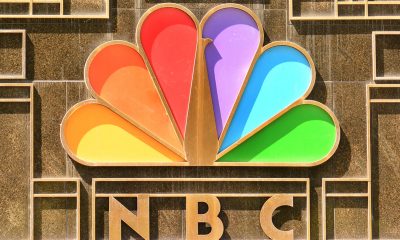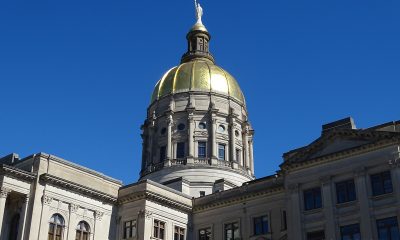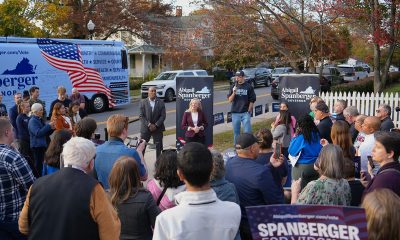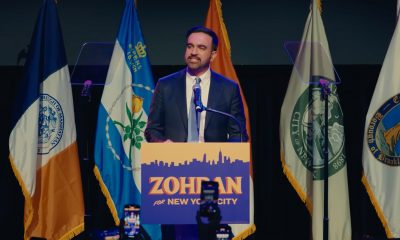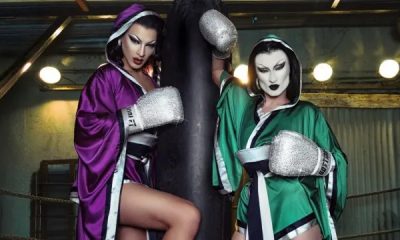Arts & Entertainment
Outspoken: The year in quotes
The best celeb quips and barbs from 2011 with Cher, Betty White, k.d. lang, Sean Maher, Wanda Sykes and more
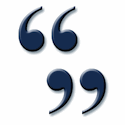
CHARLES BARKLEY
“It bothers me when I hear these reporters and jocks get on TV and say: ‘Oh, no guy can come out in a team sport. These guys would go crazy.’ First of all, quit telling me what I think. I’d rather have a gay guy who can play than a straight guy who can’t play.”
NBA Hall of Famer and now sports analyst Charles Barkley (Washington Post, May 17)
CHER
“Just got spam letter from M. Bachmann! My reply! Woman go back 2 school take history! & if I was on my deathbed & your best friend was JESUS!!! I WOULDN’T VOTE 4 YOUR GAY HATING, BULLY LOVING, POSER CHRISTIAN ASS!”
Music icon Cher, mom to transgender son Chaz Bono, on Twitter, explaining why she will not vote for U.S. Rep. Michele Bachmann for president. (On Top Magazine, Aug. 1)
WANDA SYKES
“Should I talk about [having breast cancer]? Because how many things could I have? You know black, lesbian — I’m like, I can’t be the poster child for everything. At least with the LGBT issues we get a parade and a float and it’s a party.”
Comedian and actress Wanda Sykes, discussing her battle with breast cancer for the first time in an interview with out talk show host Ellen DeGeneres. (“The Ellen DeGeneres Show,” Sept. 26)
SEAN MAHER
“I’ve just never talked about it. But it’s so liberating. It was interesting to be coming to have a conversation that I was always afraid to have. This is my coming out ball. I’ve been dying to do this.”
Actor Sean Maher, star of the short-lived NBC series “Playboy Club,” where he played a closted gay man married to a lesbian Bunny, coming out in an interview with Entertainment Weekly. (EW.com, Sept. 26)
KD LANG
“Justin Bieber looks just like a lesbian, so I’m gonna say hot as shit.”
Lesbian singer k.d. lang, asked on an Australian talk show to answer the random question, “Justin Bieber: hot or not?” (SheWired.com, Nov. 7)
“I’ve never been turned down for a role because I’m gay. I’m a character actor, and that’s probably why. I don’t find Hollywood, in my own experience, to be homophobic. … But I do think the straight folks will continue to play the straight roles.”
Actress Jane Lynch, who plays cheerleading coach Sue Sylvester on “Glee,” explaining that studios still want straight actors in straight romantic leads. (AfterElton.com, Jan. 12)
“I have lived my life very openly and have never hidden the fact that I am gay. Apparently the prerequisite to being a gay public figure is to appear on the cover of a magazine with the caption ‘I am gay.’ I apologize for not doing so if this is what was expected.”
Jonathan Knight of the now-reunited boy band New Kids on the Block, responding to questions after ‘80s pop star Tiffany, whom he once dated, discussed his sexual orientation in a recent television interview. (MSNBC.com, Jan. 31)
“He became gay later. I didn’t do it. I had issues with that. I was thinking maybe I did. Now looking back when we were dating, he was so much fun. We used to do facials together. He was so easy to talk to.”
‘80s pop singer Tiffany, discussing former boyfriend Jonathan Knight from boy band New Kids on the Block, on Bravo’s “Watch What Happens Live.” (MSNBC.com, Jan. 31)
“You know just because you don’t like the way it sounds when I say it or you don’t like my haircut or you don’t like that I’m gay, it does not mean that what we say is not true. If you squint a little bit, it is true I do sometimes look like a dude, and I am definitely gay.”
Rachel Maddow, host of “The Rachel Maddow Show” on MSNBC, denying claims that she erred in reporting on the Wisconsin labor union controversy. (On Top Magazine, Feb. 27)
“My family knew I was gay when I was 15, long before I got famous. But it’s a very different thing coming out to your family and coming out to the universe. That’s a big step. Maybe without me, there wouldn’t be Adam Lambert. Without Bowie, there wouldn’t be me. Without Quentin Crisp, there wouldn’t have been Bowie. So everything is part of a big daisy chain.”
Culture Club singer Boy George, known for his androgynous style in the ‘80s band, in an interview promoting the band’s reunion (Hollywood Reporter, Feb. 23)
“Why shouldn’t gay people be allowed to be able to marry? Those against gay marriages say marriage should only be between a man and a woman. God, I of all people know that doesn’t always work!”
Actress Elizabeth Taylor in a speech accepting the 2000 Vanguard Award from the Gay & Lesbian Alliance Against Defamation. Taylor, who was married eight times, was an early HIV advocate. She died March 23 at age 79. (E! Online, March 25)
“Well, obviously, I’m not allowed to speak about the legal battles, but I love lesbians.”
Jennifer Nettles of Atlanta superstar country group Sugarland, responding to this question: “Let’s talk about the legal battles that you had with ex-member Kristen Hall [who is gay], who sued you last year for profits she said she was owed. Did it leave a bad taste in your mouth for lesbians?” (South Florida Gay News, April 11)
“I guess you could say that I’m coming out tonight!”
Country music icon Dolly Parton, who has at times been rumored to be gay despite her marriage to a man, presenting the GLAAD Award to NBC’s Robert Greenblatt, with whom she worked on “9 to 5.” (GLAAD.org, April 11)
“I’m very gay, but I love women. I’m not attracted to men in any way. … But yes I am gay, I’m so happy. I’m a gay, heterosexual male. … I got major love for the gay and lesbian community, and I just want to push less separation.”
Rapper Lil B on why he is titling his next album “I’m Gay,” despite negative reaction and even threats from fans. (MTV News, April 21)
“We all agree that marriage is a fundamental right. And in our country, and in our society, there are no second-class citizens.”
Dancer and choreographer Bill T. Jones in a video for the Human Rights Campaign’s New Yorkers for Marriage Equality effort. (On Top Magazine, April 26)
“So when I was about 13 or 14, I realized I was attracted to women and then made the assumption that I was a lesbian, and didn’t realize that that wasn’t the case. It was the fact that I was a man and a heterosexual man. The issue wasn’t my sexual orientation, but rather my gender identity.”
Chaz Bono, the child of entertainers Cher and Sonny Bono, on coming out first as a lesbian and then as a transgender man. His book about the experience, “Transition: The Story of How I Became a Man,” was released May 10. (Time, May 9)
“I was like, ‘Oh, my God, girls are so pretty and soft. No stubble burn! What am I doing with guys?’ I haven’t dipped back since, but I was very appreciative of the experience.”
Actress Rashida Jones on kissing Zooey Deschanel in the upcoming film “Our Idiot Brother,” which she says was her first lesbian kiss both on screen and off. (The Advocate, June-July 2011)
“I mean, really: He called me 33 percent lesbian, which was a gross underestimation of my lesbian-ness.”
Actress Reese Witherspoon, responding to ‘Twilight’ actor Robert Pattinson’s comments as she received the Generation Award at the 2011 MTV Movie Awards. Witherspoon rated herself as “at least” 55 percent. (MTV News, June 6)
“The truth is if I had a gay son, I would love him just as much as if he was straight. I might have to try to love even more because I know of the difficulty that he would have in society.”
Comedian Tracy Morgan in one of his many apologies since going on an anti-gay tirade at a June 3 show in Nashville including saying he would stab his son if he were gay. (ABC News, June 21)
“NEW YORK! I [love] U! You’re OFFICIALLY the coolest place on the planet!”
Pop star Katy Perry, via Twitter, reacting to the New York Senate vote to legalize same-sex marriage. (MTV News, June 25)
“Being gay is fabulous…I have six new Facebook fan pages. And for every sponsor that falls out, I’ve gotten two more.”
Fictional news anchor Shannon Love, a character played by Queen Latifah on the July 11 episode of the VH1 show “Single Ladies,” discussing the impact of coming out in the media. Queen Latifah, who is also executive producer of the show, which is set in Atlanta, has long been the subject of speculation about her own sexual orientation. (BET.com, July 13)
“The Republican Party would be well advised to get the heck out of people’s bedrooms.”
Former GOP presidential candidate and former New York Mayor Rudy Giuliani, discussing gay marriage on CNN. Giuliani said he believes New York legalizing gay marriage is wrong, but “the reality is that this is something that New York decided by a democratic vote.” (New York Post, July 18)
“Why must she dress that way? I think she’s confused about her gender.”
Gay “Project Runway” host Tim Gunn, describing Secretary of State Hillary Clinton’s penchant for pant suits, in an interview on “Lopez Tonight.” (Huffington Post, July 27)
“If your Bible tells you that gay people ought not be married in your church, don’t tell them they can’t be married at city hall. Marriage is a civil rite as well a civil right, and we can’t let religious bigotry close the door to justice to anyone.”
Civil rights icon Julian Bond, speaking at the first ever NAACP town hall meeting on LGBT issues, held late last month in Los Angeles. (Florida Independent, Aug. 1)
“Most gay people are very tasty people — they like beautiful stuff in their lives. If they like me, it means they have taste. They don’t follow me for my butt shots.”
Actor Jean-Claude Van Damme in a recent interview with Sabotage Times (Towleroad.com, Aug. 14)
“I’m attracted to girls and that’s what’s going to make me happy. … I’ve actually had two boyfriends but I know at the end of the day who I want to come home to and it’s going to be a girl. That’s what I like.”
“So You Think You Can Dance” runner-up Sasha Mallory, in a recent interview about the Fox reality show, where she said she is “not afraid to tell people I’m gay,” but viewers “didn’t really need to know if I was gay or straight.” (AfterEllen.com, Aug. 25)
“You’ve got audiences cheering at the prospect of somebody dying because they don’t have health care and booing a service member in Iraq because they’re gay. That’s not reflective of who we are.“
President Barack Obama, criticizing recent GOP presidential debates, speaking at a Sept. 25 campaign fundraiser. (Americablog.com, Sept. 26)
“Throughout my career, I’ve always portrayed characters that were humorous, but also weren’t afraid to speak their minds, especially when it came to racy or controversial topics. I think this struck a chord with the LGBT community. We both also share a very strong love for animals. When you combine the two, it’s a very strong match.”
Actress Betty White, asked in a recent interview why “the LGBT community embraces and loves you so much.” (Frontiers LA, Sept. 23)
“By the power invested in me by the state of New York and the Universal Life Church, I now pronounce you husband and husband. You can kiss the groom.”
Talk show host Conan O’Brien after officiating the televised Nov. 3 wedding of Scott Cronick, O’Brien’s costume designer, and David Gorshein. (LA Times, Nov. 4)
“Gay and lesbian couples believe in commitment, family and love. If you don’t believe me, did you happen to notice that all that is being asked for is the right to be married, which ironically promotes commitment, family and love?”
Actress Mo’Nique in a video released late last month for the Human Rights Campaign’s Americans for Marriage Equality campaign (HRC, Oct. 26)
“I consider myself a lower-case gay, not screaming like my good friend [porn director and drag queen] Chi Chi LaRue. I love all my friends in the community, and if the moment came [for induction into the Hall Of Fame], it would be a tremendous moment, not just for the band and our fans, but for the whole LGBT community.”
Rob Halford, vocalist of heavy metal band Judas Priest, when asked whether his being gay may be why the band hasn’t been inducted into the Rock and Roll Hall of Fame. (Xtra!, Nov. 21)
“I’m for gay marriage. I don’t want to do it, but I certainly think people should be allowed to, and I wouldn’t vote for anybody that would be against it. But at the same time, why do we have to be good now? Why can’t we be villains in movies?”
Gay cult film director John Waters (“Hairspray, “Cry-Baby”) on the mainstreaming of gay culture. (Slate.com, Nov. 20)
“This means more to me than any Grammy I could ever win … It will take a village and an army, [some] countries and continents to make bullying a hate crime.”
Lady Gaga, accepting the Hero Award from the Trevor Project, which fights suicide among LGBT youth. It was presented by the family of Jamey Rodemeyer, a teen fan who killed himself earlier this year. (Eonline.com, Dec. 5)
“I basically took something that was extremely erotic and very intentional, and I reduced it to a simple kiss. I got a lot of criticism for that.”
Director Stephen Spielberg on his treatment of “the more sexually honest encounters between Shug and Celie” in his 1985 film adaption of “The Color Purple,” the novel by Alice Walker that included an explicitly sexual relationship between the two women. (Entertainment Weekly, Dec. 5)
Theater
Gay, straight men bond over finances, single fatherhood in Mosaic show
‘A Case for the Existence of God’ set in rural Idaho

‘A Case for the Existence of God’
Through Dec. 7
Mosaic Theater Company at Atlas Performing Arts Center
1333 H St,, N.E.
Tickets: $42- $56 (discounts available)
Mosaictheater.org
With each new work, Samuel D. Hunter has become more interested in “big ideas thriving in small containers.” Increasingly, he likes to write plays with very few characters and simple sets.
His 2022 two-person play, “A Case for the Existence of God,” (now running at Mosaic Theater Company) is one of these minimal pieces. “Audiences might come in expecting a theological debate set in the Vatican, but instead it’s two guys sitting in a cubicle discussing terms on a bank loan,” says Hunter (who goes by Sam).
Like many of his plays, this award-winning work unfolds in rural Idaho, where Hunter was raised. Two men, one gay, the other straight (here played by local out actors Jaysen Wright and Lee Osorio, respectively), bond over financial insecurity and the joys and challenges of single fatherhood.
His newest success is similarly reduced. Touted as Hunter’s long-awaited Broadway debut, “Little Bear Ridge Road” features Laurie Metcalf as Sarah and Micah Stock as Ethan, Sarah’s estranged gay nephew who returns to Idaho from Seattle to settle his late father’s estate. At 90 minutes, the play’s cast is small and the setting consists only of a reclining couch in a dark void.
“I was very content to be making theater off-Broadway. It’s where most of my favorite plays live.” However, Hunter, 44, does admit to feeling validated: “Over the years there’s been this notion that my plays are too small or too Idaho for Broadway. I feel that’s misguided, so now with my play at the Booth Theatre, my favorite Broadway house, it kind of proves that.”
With “smaller” plays not necessarily the rage on Broadway, he’s pleased that he made it there without compromising the kind of plays he likes to write.
Hunter first spoke with The Blade in 2011 when his “A Bright Day in Boise” made its area premiere at Woolly Mammoth Theatre. At the time, he was still described as an up-and-coming playwright though he’d already nabbed an Obie for this dark comedy about seeking Rapture in an Idaho Hobby Lobby.
In 2015, his “The Whale,” played at Rep Stage starring out actor Michael Russotto as Charlie, a morbidly obese gay English teacher struggling with depression. Hunter wrote the screenplay for the subsequent 2022 film which garnered an Oscar for actor Brendan Frazier.
The year leading up to the Academy Awards ceremony was filled with travel, press, and festivals. It was a heady time. Because of the success of the film there are a lot of non-English language productions of “The Whale” taking place all over the world.
“I don’t see them all,” says Hunter. “When I was invited to Rio de Janeiro to see the Portuguese language premiere, I went. That wasn’t a hard thing to say yes to.”
And then, in the middle of the film hoopla, says Hunter, director Joe Mantello and Laurie (Metcalf) approached him about writing a play for them to do at Steppenwolf Theatre in Chicago before it moved to Broadway. He’d never met either of them, and they gave me carte blanche.
Early in his career, Hunter didn’t write gay characters, but after meeting his husband in grad school at the University of Iowa that changed, he began to explore that part of his life in his plays, including splashes of himself in his queer characters without making it autobiographical.
He says, “Whether it’s myself or other people, I’ve never wholesale lifted a character or story from real life and plopped it in a play. I need to breathing room to figure out characters on their own terms. It wouldn’t be fair to ask an actor to play me.”
His queer characters made his plays more artistically successful, adds Hunter. “I started putting something of myself on the line. For whatever reason, and it was probably internalized homophobia, I had been holding back.”
Though his work is personal, once he hands it over for production, it quickly becomes collaborative, which is the reason he prefers plays compared to other forms of writing.
“There’s a certain amount of detachment. I become just another member of the team that’s servicing the story. There’s a joy in that.”
Hunter is married to influential dramaturg John Baker. They live in New York City with their little girl, and two dogs. As a dad, Hunter believes despite what’s happening in the world, it’s your job to be hopeful.
“Hope is the harder choice to make. I do it not only for my daughter but because cynicism masquerades as intelligence which I find lazy. Having hope is the better way to live.”
Books
New book highlights long history of LGBTQ oppression
‘Queer Enlightenments’ a reminder that inequality is nothing new
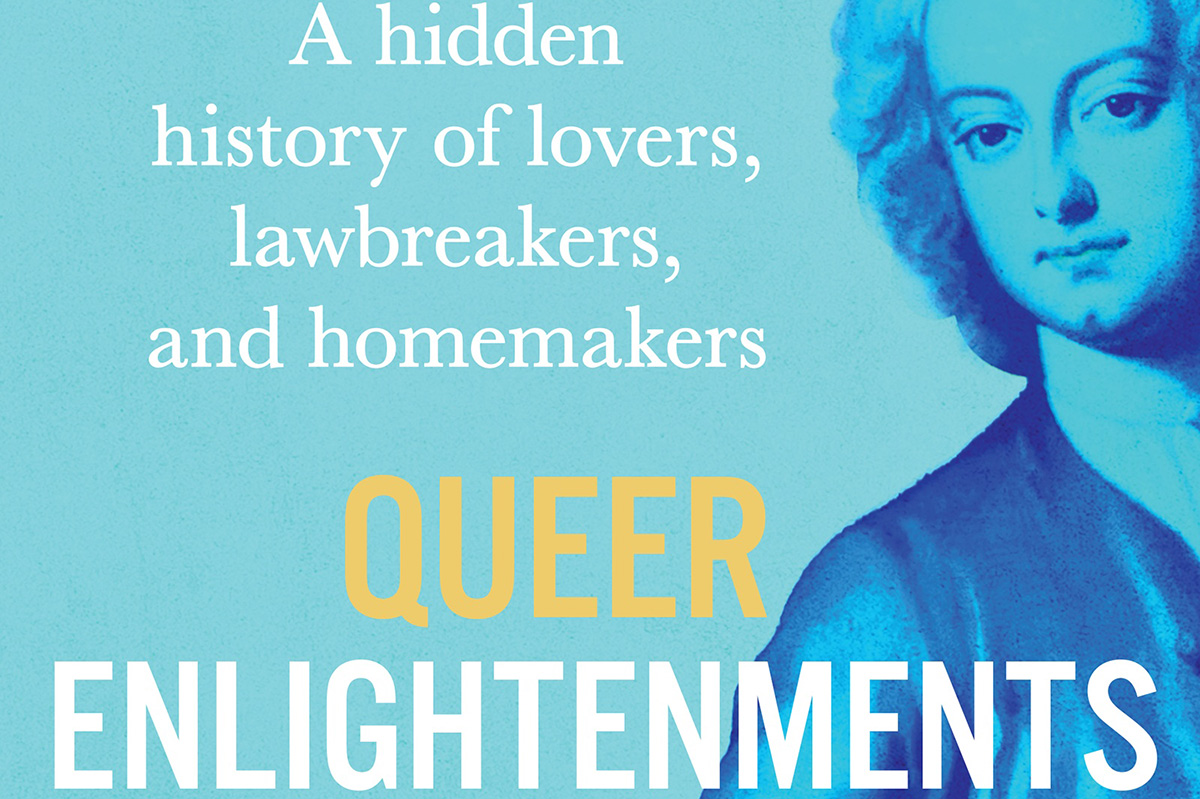
‘Queer Enlightenments: A Hidden History of Lovers, Lawbreakers, and Homemakers’
By Anthony Delaney
c.2025, Atlantic Monthly Press
$30/352 pages
It had to start somewhere.
The discrimination, the persecution, the inequality, it had a launching point. Can you put your finger on that date? Was it DADT, the 1950s scare, the Kinsey report? Certainly not Stonewall, or the Marriage Act, so where did it come from? In “Queer Enlightenments: A Hidden History of Lovers, Lawbreakers, and Homemakers” by Anthony Delaney, the story of queer oppression goes back so much farther.

The first recorded instance of the word “homosexual” arrived loudly in the spring of 1868: Hungarian journalist Károly Mária Kerthbeny wrote a letter to German activist Karl Heinrich Ulrichs referring to “same-sex-attracted men” with that new term. Many people believe that this was the “invention” of homosexuality, but Delaney begs to differ.
“Queer histories run much deeper than this…” he says.
Take, for instance, the delightfully named Mrs. Clap, who ran a “House” in London in which men often met other men for “marriage.” On a February night in 1726, Mrs. Clap’s House was raided and 40 men were taken to jail, where they were put in filthy, dank confines until the courts could get to them. One of the men was ultimately hanged for the crime of sodomy. Mrs. Clap was pilloried, and then disappeared from history.
William Pulteney had a duel with John, Lord Hervey, over insults flung at the latter man. The truth: Hervey was, in fact, openly a “sodomite.” He and his companion, Ste Fox had even set up a home together.
Adopting your lover was common in 18th century London, in order to make him a legal heir. In about 1769, rumors spread that the lovely female spy, the Chevalier d’Éon, was actually Charles d’Éon de Beaumont, a man who had been dressing in feminine attire for much longer than his espionage career. Anne Lister’s masculine demeanor often left her an “outcast.” And as George Wilson brought his bride to North American in 1821, he confessed to loving men, thus becoming North America’s first official “female husband.”
Sometimes, history can be quite dry. So can author Anthony Delaney’s wit. Together, though, they work well inside “Queer Enlightenments.”
Undoubtedly, you well know that inequality and persecution aren’t new things – which Delaney underscores here – and queer ancestors faced them head-on, just as people do today. The twist, in this often-chilling narrative, is that punishments levied on 18th- and 19th-century queer folk was harsher and Delaney doesn’t soften those accounts for readers. Read this book, and you’re platform-side at a hanging, in jail with an ally, at a duel with a complicated basis, embedded in a King’s court, and on a ship with a man whose new wife generously ignored his secret. Most of these tales are set in Great Britain and Europe, but North America features some, and Delaney wraps up thing nicely for today’s relevance.
While there’s some amusing side-eyeing in this book, “Queer Enlightenments” is a bit on the heavy side, so give yourself time with it. Pick it up, though, and you’ll love it til the end.
The Blade may receive commissions from qualifying purchases made via this post.
Movies
In solid ‘Nuremberg,’ the Nazis are still the bad guys
A condemnation of fascist mentality that permits extremist ideologies to take power
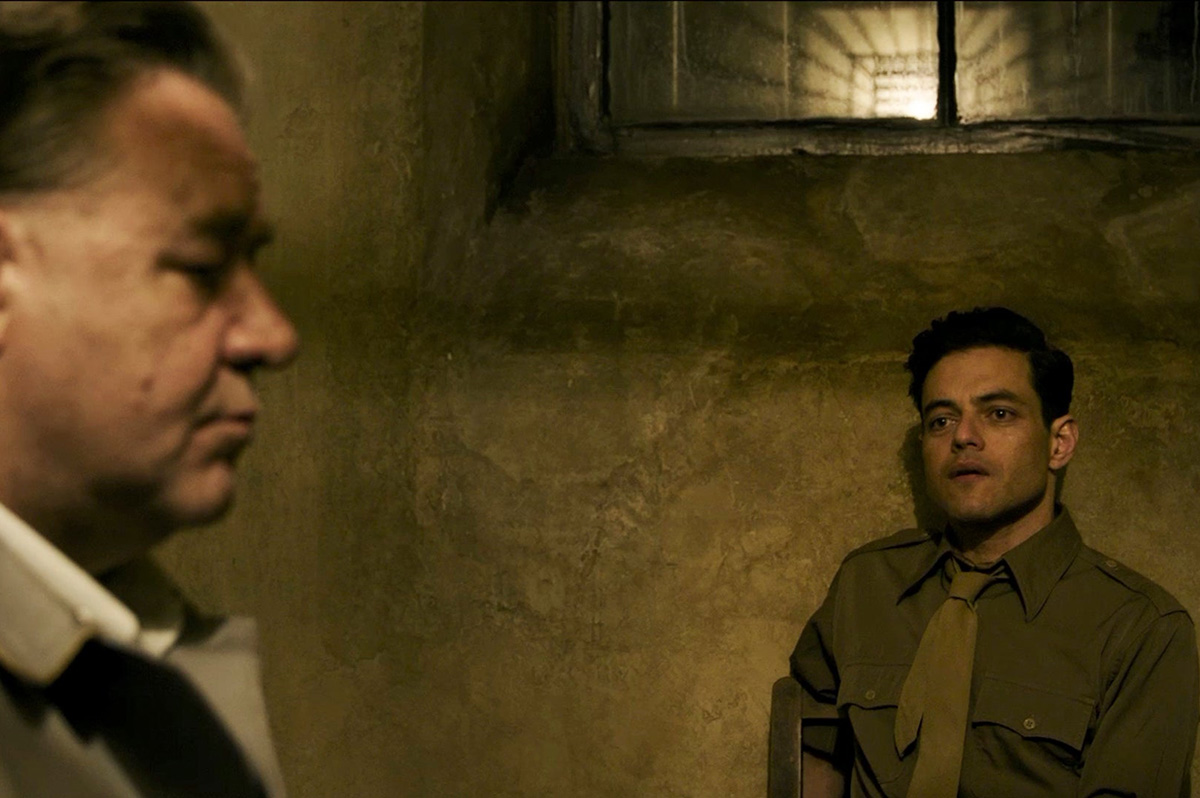
In any year prior to this one, there would be nothing controversial about “Nuremberg.”
In fact, writer/director James Vanderbilt’s historical drama – based on a book by Jack El-Hai about the relationship between Nazi second-in-command Hermann Göring and the American psychiatrist who was tasked with studying him ahead of the 1945 international war crimes trial in the titular German city – would likely seem like a safely middle-of-the-road bet for a studio “prestige” project, a glossy and sharply emotional crowd-pleaser designed to attract awards while also reinforcing the kind of American values that almost everyone can reasonably agree upon.
This, however, is 2025. We no longer live in a culture where condemning an explicitly racist and inherently cruel authoritarian ideology feels like something we can all agree upon, and the tension that arises from that topsy-turvy realization (can we still call Nazis “bad?”) not only lends it an air of radical defiance, but gives it a sense of timely urgency – even though the true story it tells took place 80 years ago.
Constructed as an ensemble narrative, it intertwines the stories of multiple characters as it follows the behind-the-scenes efforts to bring the surviving leadership of Hitler’s fallen “Third Reich” to justice in the wake of World War II, including U.S. Supreme Court Justice Robert Jackson (Michael Shannon), who is assigned to spearhead the trials despite a lack of established precedent for enforcing international law. Its central focus, however, lands on Douglas Kelley (Rami Malek), a psychiatrist working with the Military Intelligence Corps who is assigned to study the former Nazi leadership – especially Göring (Russell Crowe), Hitler’s right-hand man and the top surviving officer of the defeated regime – and assess their competency to stand trial during the early stages of the Nuremberg hearings.
Aided by his translator, Sgt. Howie Triest (Leo Woodall), who also serves as his sounding board and companion, Kelley establishes a relationship with the highly intelligent and deeply arrogant Göring, hoping to gain insight into the Nazi mindset that might help prevent the atrocities perpetrated by him and his fellow defendants from ever happening again, yet entering into a treacherous game of psychological cat-and-mouse that threatens to compromise his position and potentially undermine the trial’s already-shaky chances for success.
For those who are already familiar with the history and outcome of the Nuremberg trials, there won’t be much in the way of suspense; most of us born in the generations after WWII, however, are probably not. They were a radical notion at the time, a daring effort to impose accountability at an international level upon world leaders who would violate human rights and commit atrocities for the sake of power, profit, and control. They were widely viewed with mistrust, seen by many as an opportunity for the surviving Nazi establishment to turn the fickle tides of world opinion by painting themselves as the victims of persecution. There was an undeniable desire for closure involved; the world wanted to put the tragedy – a multinational war that ended more human lives than any other conflict in history before it – in the rear-view mirror, and a rush to embrace a comforting fantasy of global unity that had already begun to disintegrate into a “cold war” that would last for decades. “Nuremberg” captures that tenuous sense of make-it-or-break-it uncertainty, giving us a portrait of the tribunal’s major players as flawed, overburdened, and far from united in their individual national agendas. These trials were an experiment in global justice, and they set the stage for a half-century’s worth of international cooperation, even if it was permeated by a deep sense of mistrust, all around.
Yet despite the political and personal undercurrents that run beneath its story, Vanderbilt’s movie holds tight to a higher imperative. Judge Jackson may have ambitions to become Chief Justice of SCOTUS, but his commitment to opposing authoritarian atrocity supersedes all other considerations; and while Kelley’s own ego may cloud his judgment in his dealings with Göring, his endgame of tripping up the Nazi Reichsmarschall never wavers. In the end, “Nuremberg” remains unequivocal in its goal – to fight against institutionalized racism, fetishized nationalism, and the amoral cruelty of a power-hungry autocrat.
Yes, it’s a “feel-good” movie for the times (if such a term can be used for a movie that includes harrowing real-life footage of Holocaust atrocities), a reinforcement of what now feels like an uncomfortably old-fashioned set of basic values in the face of a clear and present danger; mounted with all the high-dollar immersive “feels” that Hollywood can provide, it offers up a period piece which comments by mere implication on the tides of current-day history-in-the-making, and evokes an old spirit of American humanism as it wrangles with the complexities of politics, ethics, and justice that endure unabated today. At the same time, it reminds us that justice is shaped by power, and that it’s never a sure bet that it will prevail.
Yet while it’s every inch the well-produced, slick slice of Hollywood-style history, “Nuremberg” doesn’t deliver the kind of definitive closure we might long for in our troubled times. For all its classic bravado and heartfelt idealism, it can’t deliver the comforting reassurances we desire because history itself does not provide them. The trials were not an unequivocal triumph; though they may have set a precedent in bringing accountability to power on the world stage, it’s one which, eight decades later, has yet to be fully realized. Vanderbilt doesn’t try to rewrite the facts to make them more satisfying, or soften the blow of their hard lessons, and while his movie certainly feels conscious of the precarious times in which it arrives, it doesn’t try to give us the kind of wish-fulfillment ending we might long to see – which ultimately gives it a ring of bitter truth and reminds us that our world continues to suffer from the evil of corrupt men, even when they are defeated.
It’s a movie populated with outstanding performances. Crowe delivers his most impressive turn in years as the chillingly malevolent Göring, and Malek channels all his intensity into Kelley to create a powerfully relatable flawed hero for us to cheer; Shannon shines as the idealistic but practical Jackson, and Woodall provides a likable everyman solidity to counter Malek’s volatile intensity. It might feel early to talk about awards, but it will be no surprise if some of these names end up in the pool of this year’s contenders.
Is “Nuremberg” the anti-Nazi movie we need right now? It certainly seems to position itself as such, and it admittedly delivers an unequivocal condemnation of the kind of fascist, inhuman mentality that permits such extremist ideologies to take power. In the end, though, it leaves us with the awareness that any victory over such evil can only ever be a measured against the loss and tragedy that is left in its wake – and that the best victory of all is to stop it before it starts.
In 2025, that feels like small comfort – but it’s enough to make Vanderbilt’s slick historical drama a worthy slice of inspiration to propel us into the fight that faces us in 2026 and beyond.
-

 Politics4 days ago
Politics4 days agoPro-trans candidates triumph despite millions in transphobic ads
-

 Opinions4 days ago
Opinions4 days agoDemocratic Socialism won’t win the whole country
-

 National4 days ago
National4 days agoUS bishops ban gender-affirming care at Catholic hospitals
-

 Drag5 days ago
Drag5 days agoGottmik and Violet Chachki are bringing drag excellence across the country with ‘The Knockout Tour’

